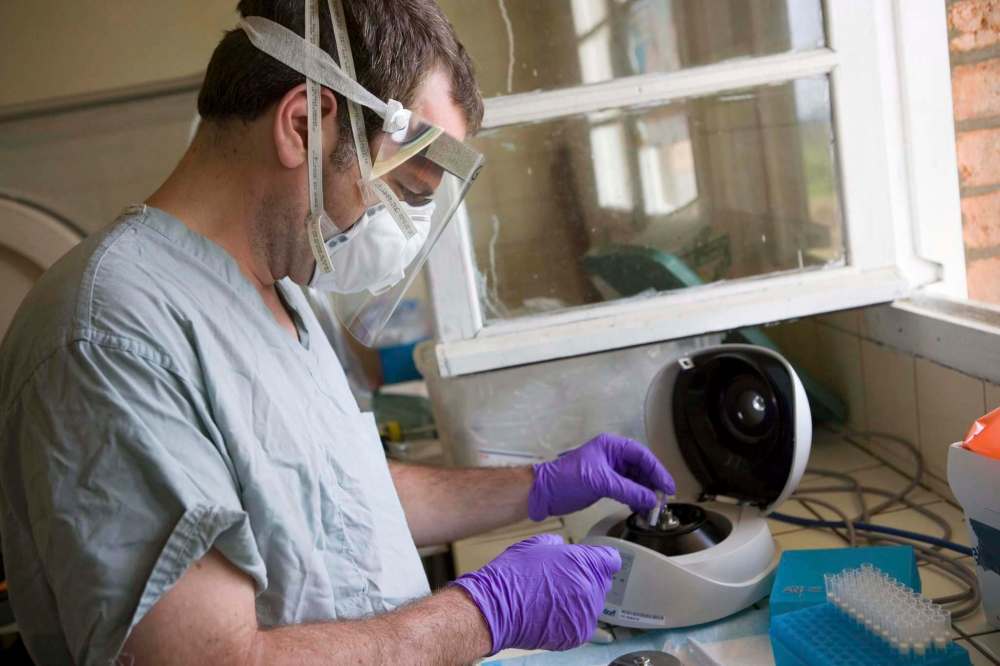Ebola shipment potential legal risk
Intellectual property rights, rules at heart of microbiology lab incident
Advertisement
Read this article for free:
or
Already have an account? Log in here »
To continue reading, please subscribe:
Monthly Digital Subscription
$0 for the first 4 weeks*
- Enjoy unlimited reading on winnipegfreepress.com
- Read the E-Edition, our digital replica newspaper
- Access News Break, our award-winning app
- Play interactive puzzles
*No charge for 4 weeks then price increases to the regular rate of $19.00 plus GST every four weeks. Offer available to new and qualified returning subscribers only. Cancel any time.
Monthly Digital Subscription
$4.75/week*
- Enjoy unlimited reading on winnipegfreepress.com
- Read the E-Edition, our digital replica newspaper
- Access News Break, our award-winning app
- Play interactive puzzles
*Billed as $19 plus GST every four weeks. Cancel any time.
To continue reading, please subscribe:
Add Free Press access to your Brandon Sun subscription for only an additional
$1 for the first 4 weeks*
*Your next subscription payment will increase by $1.00 and you will be charged $16.99 plus GST for four weeks. After four weeks, your payment will increase to $23.99 plus GST every four weeks.
Read unlimited articles for free today:
or
Already have an account? Log in here »
Hey there, time traveller!
This article was published 01/08/2019 (2325 days ago), so information in it may no longer be current.
OTTAWA — Canada could be exposed to legal liability if the pathogens it sent to China from a Winnipeg lab are misused, a top Canadian scientist said.
Gary Kobinger said while it’s highly unlikely the recent shipment would be abused, Ottawa requires adequate paperwork to protect the government from such a situation.
“Typically, when you ship reagents with a Material Transfer Agreement (MTA), an important clause is to release liability,” Kobinger said Thursday. “Those (agreements) are… for ensuring that the recipient will not use the materials to, even accidentally, cause harm.”

Kobinger co-led Canada’s efforts to develop Ebola vaccine ZMapp at the National Microbiology Lab in Winnipeg, alongside Xiangguo Qiu.
Qiu was removed from the laboratory early last month. On May 24, the Public Health Agency of Canada called in the RCMP to investigate “possible policy breaches.” Multiple sources told the Free Press that Risk Group 4 specimens were sent to China earlier this year without following federal protocol.
The agency confirmed late Thursday that the shipment included the Ebola and Henipah viruses.
Qiu had worked in Canada for two decades as an award-winning biologist, helping to lead one of the world’s few Level 4 labs.
On Wednesday, the Free Press revealed employees at the lab believe the shipment lacked a material transfer agreement, which spells out intellectual property rights and rules for patents and published works.
None of the sources felt public safety was put at risk; the RCMP and the federal agency said the onerous safety requirements involved in shipping such a specimen had been followed.
However, the sources were troubled none of the dozens of people following the shipment as it moved between trucks, planes and laboratories had stopped to ask why no material transfer agreement was in place.
Sources told the Free Press the issue was first raised by officials in Ottawa.
The shipment was sent this spring, amid a tense political dispute between the two countries, sparked by the arrest of a Huawei Technologies executive and followed by China’s boycott of canola and pork imports, and detention of two Canadians.
Carleton University national security lecturer Leah West said it “seems plausible” China could have asked a researcher to send specimens without a material transfer agreement, given how frequently the country is accused of industrial espionage.
“If it’s a glaring oversight, then it makes sense, as just a policy issue where a scientist might be suspended,” West said from Ottawa.
“But if it’s deliberately (excluded) in the context of sending something to China, we do want to jump to the conclusion that this is another element of China’s statewide, strategic efforts to gain access to intellectual property through nefarious means.”
She said Canadian firms must guard against government-paid science ending up in foreign hands, because taxpayers could end up paying twice for the use of knowledge others patent.
However, Jia Wang, deputy director of the University of Alberta’s China Institute, cautioned against linking Chinese researchers with past incidents of misdeeds by China, unless there’s evidence to do so.
“It’s a bit of a complicated issue,” Wang said from Edmonton. “We almost sense a global rivalry in innovation, and science and technology research.”
For years, the Canada China Business Council’s annual surveys have listed intellectual property theft among Canadian firms’ top concerns, but fewer companies have indicated it’s an issue in recent years.
This year, China blocked local firms from compelling foreign companies to share intellectual property in order to access the market. Wang said while critics have called the law vague, it shows China is trying to respond to western concerns.
Wang said university colleagues occasionally complain about the strict rules on scientific collaboration.
“We sometimes find researchers are so eager to work with other researchers and advance their work, to hopefully speed it up, especially when it comes to infectious disease,” she said.
“Often, their heart is in right place… but on the other hand, security measures are put in place for a good reason.”
Both West and Wang said Canada’s spat with China over other issues is not helpful for academic research, but neither expected those disputes to have any bearing on the material transfer agreement issue, or vice versa.
They also agreed Ottawa should clarify what Qiu is accused of, in order to undercut rumours, though they acknowledged an RCMP investigation likely limits what the agency can say.
Kobinger, who now works at Laval University in Quebec City, questions the premise Canada could actually turn a profit from Ebola specimens, because the disease is so rare it’s unlikely any vaccine will be profitable.
dylan.robertson@freepress.mb.ca






